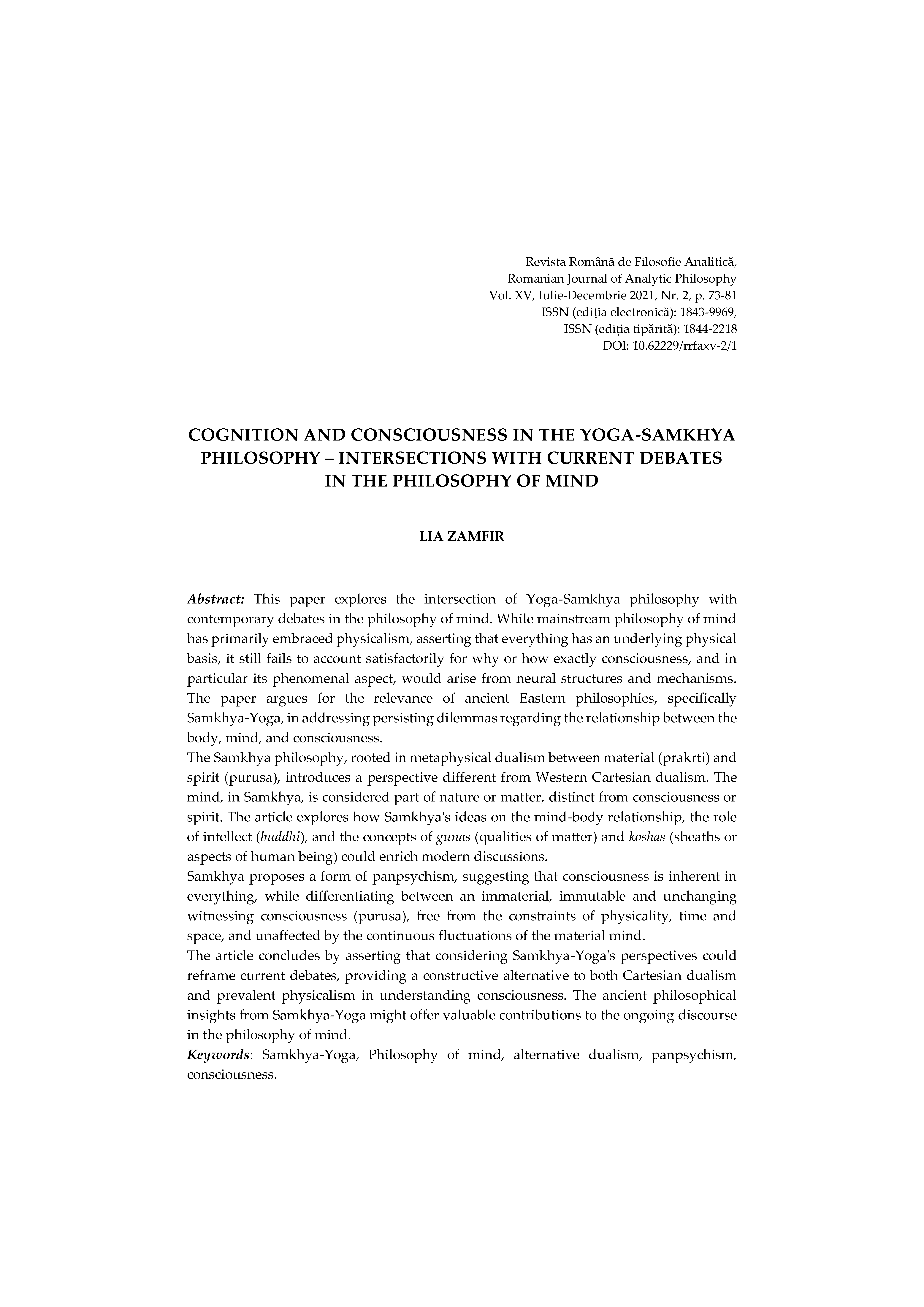COGNITION AND CONSCIOUSNESS IN THE YOGA-SAMKHYA PHILOSOPHY – INTERSECTIONS WITH CURRENT DEBATES IN THE PHILOSOPHY OF MIND
DOI:
https://doi.org/10.62229/rrfaxv-2/1Keywords:
Samkhya-Yoga, Philosophy of mind, alternative dualism, panpsychism, consciousnessAbstract
This paper explores the intersection of Yoga-Samkhya philosophy with contemporary debates in the philosophy of mind. While mainstream philosophy of mind has primarily embraced physicalism, asserting that everything has an underlying physical basis, it still fails to account satisfactorily for why or how exactly consciousness, and in particular its phenomenal aspect, would arise from neural structures and mechanisms. The paper argues for the relevance of ancient Eastern philosophies, specifically Samkhya-Yoga, in addressing persisting dilemmas regarding the relationship between the body, mind, and consciousness.
The Samkhya philosophy, rooted in metaphysical dualism between material (prakrti) and spirit (purusa), introduces a perspective different from Western Cartesian dualism. The mind, in Samkhya, is considered part of nature or matter, distinct from consciousness or spirit. The article explores how Samkhya's ideas on the mind-body relationship, the role of intellect (buddhi), and the concepts of gunas (qualities of matter) and koshas (sheaths or aspects of human being) could enrich modern discussions.
Samkhya proposes a form of panpsychism, suggesting that consciousness is inherent in everything, while differentiating between an immaterial, immutable and unchanging witnessing consciousness (purusa), free from the constraints of physicality, time and space, and unaffected by the continuous fluctuations of the material mind.
The article concludes by asserting that considering Samkhya-Yoga's perspectives could reframe current debates, providing a constructive alternative to both Cartesian dualism and prevalent physicalism in understanding consciousness. The ancient philosophical insights from Samkhya-Yoga might offer valuable contributions to the ongoing discourse in the philosophy of mind.





